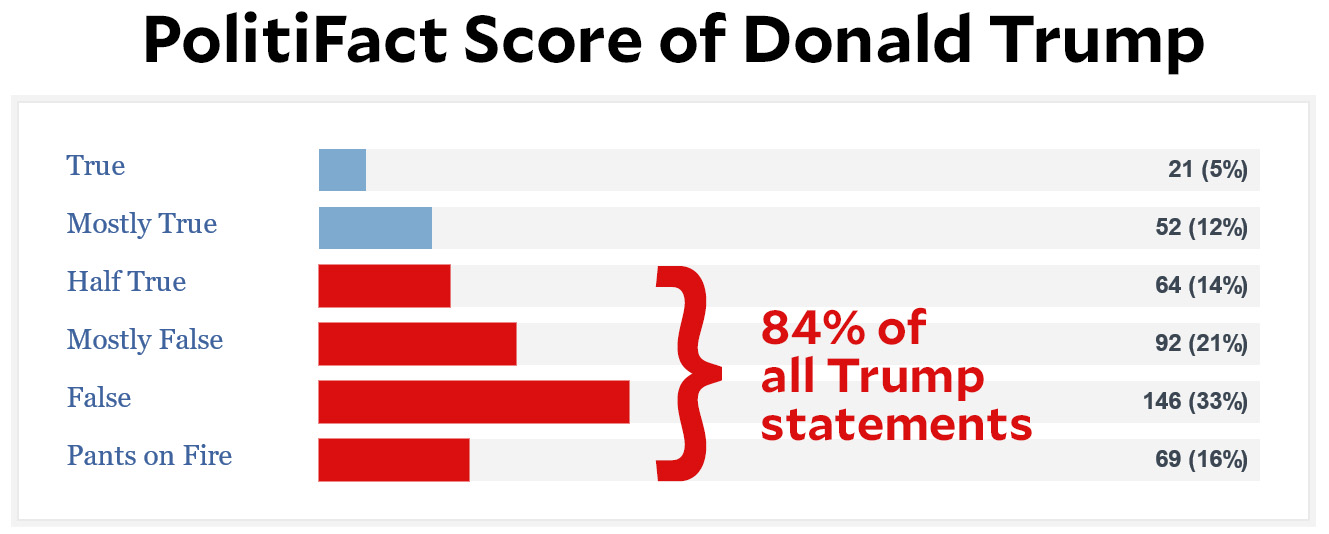Over at Poynter, Alexios Mantzarlis celebrates the tenth anniversary of PolitFact:
It’s the summer of 2007….In Washington, D.C., St Petersburg Times bureau chief Bill Adair is brainstorming new ways to cover the upcoming presidential race, motivated in part by a sense of guilt. “I had covered political campaigns,” he would later say, “and felt that I had been a passive co-conspirator in sort of passing along inaccurate information.”
….What Adair thought would differentiate the project, renamed “PolitiFact” by Executive Editor Neil Brown, was a rating system with a silly name (the “Truth-O-Meter”) and a highly structured content management system that would allow for easy sorting of all the published fact checks.
….Over the next decade, PolitiFact would win the Pulitzer Prize for national reporting, partner with more than a dozen newspapers to launch state-level affiliates and build a brand with a larger online following than its parent organization. Along the way, PolitiFact helped shape political fact-checking across the world.
I hate to pick on PolitiFact. I have issues with all the “fact checking” sites, but for the most part I think they do good work. At the same time, the rise of fact checking seems to have coincided not with an overall rise in honesty among politicians, but with the rise of a complete disdain for facts among Republicans. This peaked in 2016 with the victory of Donald Trump, a man who, according to PolitiFact, barely ever opens his mouth to say something true.
Is this just a coincidence? Or is there some kind of relationship here? I don’t know. But it’s hard not to wonder.


















